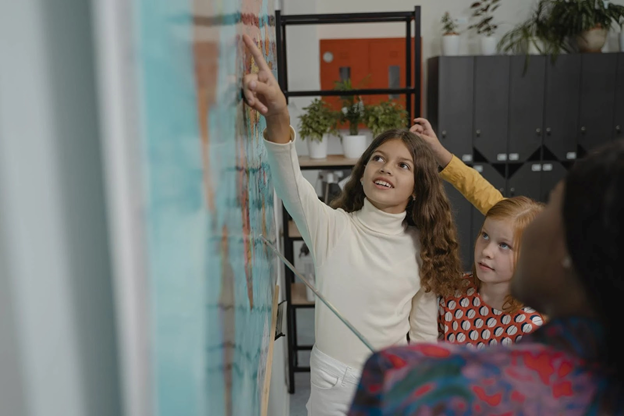8 Useful Steps to Start Your Homeschool Journey
Many children are forced to have home schooling for various reasons. But some parents also prefer to teach their children at home instead of the kindergarten system. These are different learning conditions because the child perceives information differently. Children study at home, but discipline is violated, so parents should give the child maximum attention. Lessons at home should not differ in schedule from classes at school so that the child does not forget about the schedule. Various methods can be used for homeschooling because they are simple and understandable for parents. For example, ESM is now very popular, which teaches you to understand mathematics from a completely different perspective. You can see detailed information on the website. If you have questions then contact here.
Useful Tips To Make Homeschooling Easier
Many people compare home training to home sports training. Motivation and willpower are important, the lesson should not stop because you are hard or too lazy to do it. Children should love to learn not only at school but also at home. At school they have a group of friends, communication, certain moments of rest. At home, the child should not be alone, and classes should have breaks. There are 8 other steps to make homeschooling enjoyable and productive.
- Study material from various sources. Find methodological aids on the Internet on how to organize study time correctly and how to best present information to children of different ages. The pedagogical niche is important here; you may choose one learning style or combine several of them. It is necessary to find an individual approach, taking into account the nature and behavior of current students.
- Create a list of goals to set up a routine and keep motivated. This could be a weekly class schedule for your child or a simple list of plans for the day. Show your child how to do this and how nice it is to cross out completed items. It teaches order and will help to achieve any goal. Write a list every night, whether it be grand plans or simple goals for the next month.
- Create a study plan that consists not only of the class schedule but also of the acquisition or collection of the necessary literature. Sometimes it can be found on the Internet; sometimes it's better to go to the nearest library. Here it is important to take into account any details (for example, notebooks for writing down information, a set of pens, felt-tip pens, etc.) Many children love the process of choosing school supplies, leave it for them to enjoy.
- Make the study area comfortable and convenient enough. You may need to add a few drawers for small items or purchase another bookcase. Make sure everything you need is close by so you can take it when you need it. For example, you need to sharpen a pencil or draw a graph on A4 paper.
- Now you need to add class time to your schedule. You must remember that math starts at 12:00. This rule is the same even if you accidentally change plans. Lessons should have a clear place on your daily calendar. You can’t change it or postpone it because your beloved friend called you. Imagine that you have gone to class and no one is at home. Turn off any stimuli so as not to be distracted in the process of exercising.
- Make a careful lesson plan with explanations of the required material. This will allow you to present information partially and not burden yourself with unnecessary data. Any lesson is the gradual addition of new information so that people do not get confused and lost. New terms should be explained so that later you can understand the essence of the task. A lesson plan can be made for a week, it is more convenient than planning every lesson the night before.
- Create a separate list, or better yet a spreadsheet, to see your progress. It can be reports or a scale with academic performance. If you plan to teach a child, then he needs a reward system. It is best to find a nice reward in the form of a weekend trip to the zoo or a trip to nature. The grading system is a measure of performance that you can control. This will allow you to understand what the child understood better, what is worse.
- You can find support. There are special programs that help in home schooling. These are different types of help, perhaps even a psychological type will be useful for you. Homeschooling is difficult because many people are not used to discipline. Programs will provide you with specialists who will provide individual assistance.
This type of learning is not just a decision, it's a lifestyle choice. There is such an education system not only for schoolchildren but also for students. The first is discipline and getting rid of laziness. Here it is important to learn to be responsible and disciplined and not to violate the schedule of your classes.
Conclusion
Many children and adults remain homeschooled. This phenomenon is quite popular, so modern techniques will help to simplify this process as much as possible. Children can be distracted from the perception of information because the home environment is relaxing. One mother has been teaching a child at home since the age of 5, she closes the dog in another room because the child is distracted by playing with the animal. She advises making the study room as discreet as possible without bright details and distracting things. Be patient and you can achieve great results.


